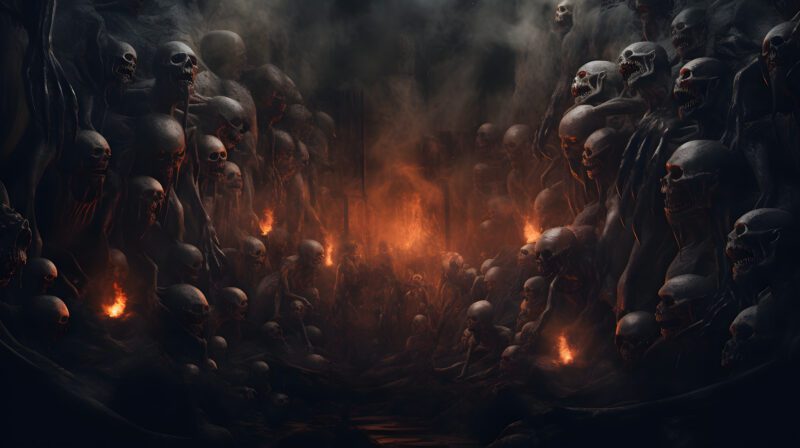
The Boast of the Humble, Part 6
Published September 9, 2025
We continue to look at the marvelously rich passage of Scripture in 1 Corinthians 1:30-31, where we see God’s effectual power in our salvation, giving us four treasures in Christ: wisdom, righteousness, sanctification, and redemption. Today, we come to the fourth treasure Christ has become for us: redemption.
A current understanding of redemption often leads to thoughts of a moment where someone proves himself, overcomes past failures to achieve success, or shows he has what it takes. When we come to the Bible, however, redemption has a vastly different meaning. The concept of redemption in Scripture did not come from the world of sports or self-vindication after a series of failures, but from the world of slavery.
To understand Christ as our redemption, we must understand the definition and application of His work. First, we have been redeemed from slavery.
A biblically based definition of redemption involves being redeemed from some state of bondage or slavery. Those who need to be redeemed are slaves under a tyrannical master in a dreadful plight.
The greatest act of redemption in the Old Testament was Israel from Egyptian captivity. Israel often spoke of God as their redeemer and their deliverance from slavery as God’s redemption. In Psalm 106:9-11, the psalmist says that Israel was saved from the hand of those who hated them and was redeemed from the hand of the enemy. In Psalm 77:15, the psalmist writes that God redeemed Israel by rescuing them from slavery and liberating them from bondage.
This Old Testament understanding sets the frame of reference when we read in 1 Corinthians that Christ is our redemption. Christ has set us free from slavery and from our enemies. As Jesus reminded the Jews in John 8:34, we are slaves of sin apart from Him. We serve sin, and sin rules over us spiritually like the Egyptians ruled over Israel politically. Paul echoes Jesus’ statement in Romans 6:20, noting that we were slaves of sin outside of Christ. Unbelievers do not have a morally neutral will that is free to obey or disobey God, or to believe or not believe the gospel because they are enslaved to sin.
Not only are unbelievers enslaved to sin, but also to death, per Romans 5:14. Death reigns over sinners, and no one escapes death – though many try to avoid it. Death is an unrelenting master over humanity.
Because we are enslaved to death, we are enslaved to fear, according to Hebrews 2:15. We saw this truth on display when the COVID-19 virus swept the world and instilled so much fear in society. Death was the topic of every report. Christians should be compassionate when unbelievers are terrified of any life-threatening situations because we realize they are enslaved to that fear.
Sinners are also slaves to the devil. 2 Timothy 2:26, speaking of unbelievers, says they are held captive by the devil to do his will.
Redemption, then, is the truth that Christ has set us free from a dreadful slavery. We are no longer slaves of sin. We are no longer slaves of death because we have received the grace of God and the gift of righteousness. We are no longer slaves of fear because death and fear are powerless over us. And we are no longer slaves of the devil because God has transferred us into the kingdom of His beloved Son.
Second, we have been redeemed by payment.
Redemption always involves a great cost or payment, which sets it apart from more general terms for salvation and deliverance. In 1 Peter 1:18-19, Peter says we were redeemed with the great cost of the precious blood of the perfect Lamb of God. Our Lord Jesus Christ went to the cross, shed His blood, and died to set us free from sin, death, fear, and the devil.
The idea here is that of substitution. Christ died in our place, which means that God punished Him for our sins. This was prophesied in Isaiah 53:8, where the prophet foretold that Jesus would stand in our place, taking our punishment upon Himself, so instead of being slaves to sin, we would be slaves to righteousness; instead of being slaves to death, we would reign in life; instead of being slaves to fear, we would have His peace; and instead of being slaves to the devil, we would be God’s children.
In Galatians 3:13, we see our redemption in Christ, that He redeemed us from the curse of the Law, setting us free from the condemnation from violating God’s Law. Our Lord paid the price we deserved, becoming a curse for us on the cross. Titus 2:14 says that Christ gave Himself to redeem us from every lawless deed. Jesus satisfied God’s wrath when He died.
Finally, we have been redeemed to worship.
When we read about Israel’s redemption from Egypt in Deuteronomy 6, we find that God told His people to fear and worship Him as an outflow of their redemption. Israel was set free from Pharoah so that their only master was the living God, who deserved their worship. The idea of worship here is that of serving, which is often counter-intuitive. We don’t think of being set free from slavery as being set free to serve. However, God did not redeem us so we might serve ourselves, but so we might serve Him.
In 1 Peter 1, Peter echoes Deuteronomy 6. Christians have been redeemed from our futile way of life, which is living for ourselves. The fulfilled life is only experienced when we live for God’s glory, worshipping and fearing Him. Peter also tells us that this life of fearing the Lord results in heartfelt love for one another. We serve and worship God most clearly when we show true love to His blood-bought people.
The same theme emerges in Titus 2:14. We were redeemed with the greater redemption – the one the Exodus pointed to, through the blood of Christ, who is our Passover – so that we might be God’s special people who are eager to please Him. We are not free to live independently of God, but in fellowship with Him. Independence from God is destruction; dependence on God as His redeemed people is life.
Our redemption to worship, though fully paid now, is not finished. We are reminded in Romans 8:23 that we have been set free from Satan, sin, fear, and death – and yet how greatly we battle these foes in this fallen world and in our sinful bodies. However, we know from Christ’s resurrection and glorified body that the day is coming when we will be made like Him to worship and serve Him in glory eternally. We have only seen a glimpse of the fullness of this glorious salvation that will be consummated at Jesus’ coming.
This is the outcome of God’s effectual power. Christ has become for us wisdom from God. He has become our righteousness so that we are justified in God’s sight. He has become our sanctification so that we are holy in God’s sight. And He has become our redemption so that we might worship God today and every day throughout all eternity.
It was not our work that saved us and brought us into relationship with Jesus Christ; it was God’s work. Nothing about our salvation traces its way back to us except one thing: our sin. Everything we have in our salvation is a gift of God, by grace, unearned and unmerited.
That is why Paul ends the chapter in verse 31 with one conclusion, that our only boast is in the Lord. Christians have become a humble people because we see that every good thing is an undeserved gift of God because of His grace. The true boast of the humble is always and only the Lord Jesus Christ.




0 Comments